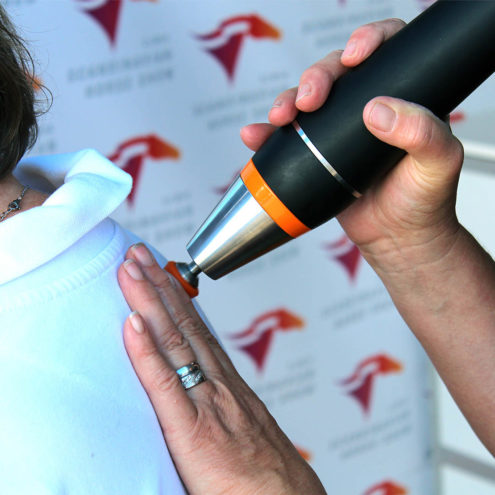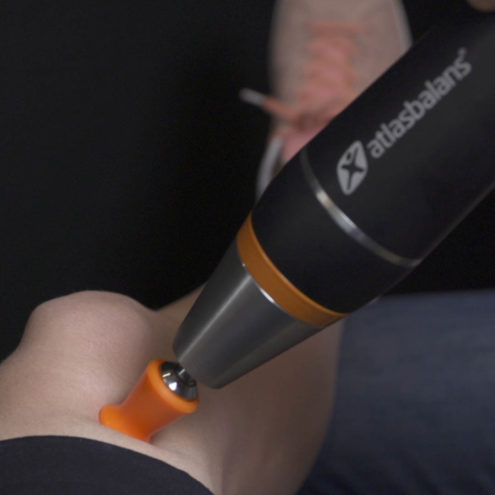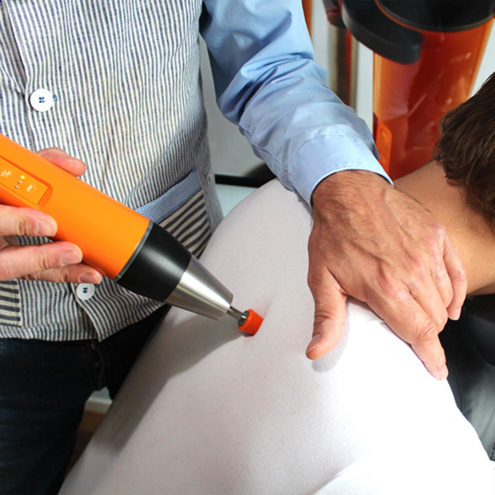Exercises for Tension Headaches: Relief and Prevention with the FasciaClinics

Introduction to tension headaches and their causes
Tension headaches are a common condition affecting people all over the world. The condition is often characterized by a persistent, pressing pain. This type of headache can be caused by a number of factors, such as stress, poor posture, and prolonged fixation in one position.
Why Exercises Can Help With Tension Headaches
Reduce muscle tension
Tension in the muscles and fascia, especially around the neck and shoulders, is a primary cause of tension headaches. Performing specific exercises regularly can reduce tension and relieve headaches. These exercises help to soften stiff fascia and rigid muscles, improving mobility in the neck and shoulders so the pressure that causes headaches is reduced.
Improve circulation
The right exercises can also improve circulation in the area. When the fascia is stiff, it can impede blood flow and lymph flow in the surrounding tissues. By increasing circulation, you can reduce the accumulation of tension and toxins in the muscles and fascia, which in turn can reduce headaches.
Recommended exercises for tension headaches
Neck and shoulder stretching
Stretching the neck and shoulders can reduce tension. Exercises should be performed gently and gradually to avoid overstretching.
Neck stretch: Sit or stand with a straight back. Tilt your head to one side, try to shoulder without lifting it. Hold for 60 seconds and repeat on the other side.
Shoulder rolls: Sit or stand with a straight back. Roll your shoulders slowly backwards in a circular motion. Repeat 10 times and then change direction.
Breathing exercises
Breathing exercises can be a good tool to reduce tension. Deep breathing helps muscles to relax and benefits circulation.
Deep abdominal breathing: Sit comfortably with a straight back. Inhale deeply with your nose until your belly expands fully. Then exhale slowly through your mouth. Repeat for 5-10 minutes.
4-7-8 Breathing: Inhale for 4 seconds, hold for 7 seconds, and exhale for 8 seconds. This technique helps to reduce stress and tension.
Additional tips for managing tension headaches
Ergonomics and working position
Maintaining good ergonomics at your workstation can be important in preventing attacks of tension headaches. Make sure your workstation is designed to reduce strain on your neck and shoulders.
Regular breaks
Take regular breaks from work or other activities to stretch your body and reduce tension. Short walks or light stretching can make a big difference.
Read also more about: Chronic headaches & Long-term headaches
FAQ – Frequently asked questions about tension headaches and exercises
How often should I perform these exercises to affect my fascia?
To achieve optimal effect on the fascia, it is recommended to perform these exercises several times daily. Our fascia adapts and becomes more elastic over time with regular stretching and movement. It is important to remember that changes in the fascia are gradual, so patience and consistency are key.
Can exercises targeting the fascia replace medication for tension headaches?
Exercises that specifically target the fascia can be a powerful tool for managing tension headaches and can in some cases reduce the need for medication. These exercises help to reduce tension and improve circulation, which can significantly reduce pain. However, it is important to consult with a healthcare professional before making any major changes to your treatment plan.
What other treatment methods that focus on the fascia are recommended for tension headaches?
In addition to exercises, fascial therapy can be effective in managing tension headaches. This technique focuses on releasing tension in the fascia through manual and mechanical methods. Other methods may include specific stretches aimed at increasing fascia flexibility and pain relief.
How do stress and emotional well-being affect the fascia associated with tension headaches?
Stress and well-being play a big role in our fascia. When we are stressed, the body tends to tense up, which can make our fascia stiff. This stiffness can in turn contribute to or worsen tension headaches. Integrating relaxation techniques and stress management strategies, such as mindfulness and yoga, can be effective
Are there any specific lifestyle changes that can help improve the health of my fascia to prevent tension headaches?
Yes, there are several lifestyle changes that can positively affect your fascia. Maintaining a healthy diet can help reduce inflammation in the body and thus in the fascia. Regular exercise, such as cardio and strength training, helps to keep the fascia supple and strong. It is also important to maintain good hydration, as the fascia needs enough fluid to function optimally. Finally, ensuring adequate and quality sleep is crucial for the body’s ability to repair and maintain the fascia.
Fight Tension Headaches with the FasciaClinics
Regular exercises to manage tension headaches are an important part of maintaining good health and well-being. At Fascia Clinics, we can offer tailored programs and support to help you manage and prevent tension headaches. Visit us to learn more and get the help you need to live a life free from headaches.
 Search
Search


































